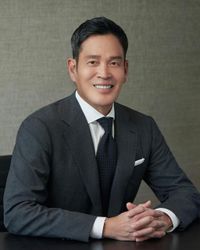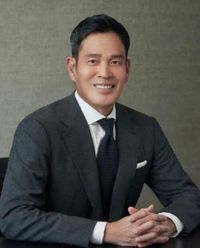On June 11, 2025, Jung Yong-jin, Chairman of Shinsegae Group, announced decisive legal action against a wave of false and defamatory content circulating on YouTube and other social media platforms. These so-called "cyber wreckers," malicious YouTubers who sensationalize private lives and controversies to boost their viewership, have been spreading baseless rumors about Jung and his family, crossing a line that Shinsegae Group says cannot be tolerated.
The rumors include startling claims such as Jung transferring assets to his ex-wife under his son's name, family discord threatening his position as chairman, and an extravagant congratulatory gift of 5 billion won from the ex-wife at the son's wedding. Not only are these allegations entirely unfounded, but some videos have even unlawfully used family photos to lend false credibility to their stories.
Shinsegae Group has described the situation as a severe defamation crisis, emphasizing that the content goes far beyond acceptable limits. "The false information is not only damaging to Chairman Jung personally but also poses a serious threat to the brand value of Shinsegae Group," a company spokesperson explained. The group’s decision to take strong legal measures reflects the gravity of the situation.
Chairman Jung is personally spearheading the response, coordinating with Shinsegae’s legal team to select a law firm that will handle the lawsuits. The group is prepared to pursue all possible civil and criminal legal actions against those responsible. This includes filing lawsuits and requesting information disclosure through courts not only in South Korea but also overseas, such as in the United States, to track down and hold accountable the perpetrators who sometimes use foreign IP addresses—Vietnam, for example—to evade domestic jurisdiction.
"We will not show any leniency in the upcoming legal proceedings," a Shinsegae Group official stated firmly. The group is determined to ensure that these malicious YouTubers face full responsibility for the harm they have caused.
The phenomenon of "cyber wreckers" is a growing social problem in South Korea and beyond. These content creators exploit negative incidents involving celebrities and public figures, often fabricating or exaggerating stories to attract clicks and generate revenue. The case involving Jung Yong-jin highlights the darker side of this trend, where unchecked rumors can quickly spiral into reputational damage with real-world consequences.
Experts note that such defamation not only harms individuals but can also undermine corporate reputations, investor confidence, and public trust. For a conglomerate like Shinsegae Group, which holds a significant position in South Korea’s retail and business sectors, protecting brand integrity is crucial. The group’s swift and firm response signals a broader effort to push back against the unchecked spread of misinformation online.
Chairman Jung’s approach also demonstrates a modern legal strategy that leverages international courts to combat digital defamation. By requesting information disclosures and filing suits abroad, Shinsegae aims to pierce the veil of anonymity that some malicious actors rely on. This cross-border legal maneuvering is increasingly important in an era where internet content flows freely across national boundaries.
The stakes are high. The rumors, if left unchallenged, threaten to erode the personal dignity of Jung and his family and could inflict lasting damage on the Shinsegae brand. The group’s public statements make clear that this is not a matter they will take lightly.
As social media platforms continue to evolve, the balance between free expression and responsible content creation remains delicate. Cases like this underscore the need for robust legal frameworks and vigilant enforcement to protect individuals and businesses from harmful misinformation.
In the coming months, observers will watch closely as Shinsegae Group pursues its legal actions. The outcome could set important precedents for how corporate leaders and public figures respond to defamatory online content in South Korea and beyond.
Ultimately, Jung Yong-jin’s determination to confront these cyber wreckers head-on sends a strong message: falsehoods that damage reputations and brands will meet with full legal consequences, no matter where the perpetrators hide.


